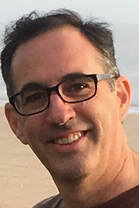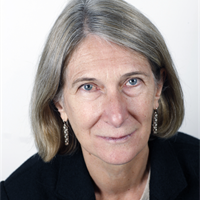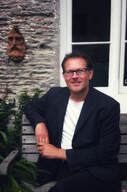The Captivating Criminality Network is delighted to announce its tenth conference, Captivating Criminality 10: Celebrating Crime Fiction, which will be held at Bath Spa University in Bath, UK. Building upon and developing ideas and themes of the previous successful conferences, Celebrating Crime Fiction will consider and reflect upon the growing interest in Crime Fiction scholarship over the past decade. We are particularly interested in examining the changes in the landscape of crime fiction study through the years of our Captivating Criminality conferences. The study of crime fiction has now emerged as a vital thread with the capacity to transform interdisciplinary academic discourse. Our aim is to celebrate this expanding and evolving field of scholarship
For the first time in the Captivating Criminality series, there will be no specific theme. Rather speakers are invited to embrace and celebrate their diverse approaches, exploring the crossing of forms and themes. Papers presented at Captivating Criminality 10 will thus examine any and all aspects of crime fiction. In recent years, the Captivating Criminality series has demonstrated the ways in which crime fiction is no longer regarded as a fixed genre. Emerging areas of study such as Domestic Noir and True Crime now sit adjacent with ‘new’ readings of ‘old’ subgenres such as The Golden Age and the Hard Boiled. Of course, ‘new’ areas of study all have their roots in the past and abstracts that address that or present work on previously neglected authors are of particular interest. Presentations addressing crime fiction in all forms are welcome, as are papers adopting a range of theoretical, sociological, and historical approaches.
Topics may include but are not restricted to:
- True Crime
- Gender
- Crime Fiction in the age of #MeToo
- Crime Fiction and Landscape
- Revisionist Crime Fiction
- Crime Fiction and contemporary debates
- Crime Reports and the Press
- Real and Imagined Deviance
- Adaptation and Interpretation
- Crime Fiction and Form
- Generic Crossings
- Crime and Gothic
- The Detective
- The Anti-Hero
- Geographies of Crime
- Real and Symbolic Boundaries
- Ethnicity and Cultural Diversity
- The Ideology of Law and Order
- Tradition and Innovation
- Gender and Crime
- Women and Crime
- Victims and Perpetrators
- Crime and Queer Theory
- Film Adaptations
- TV series
- Technology
- The Media and Detection
- Sociology of Crime
- The Psychological
- Early Forms of Crime Writing
- Victorian Crime Fiction
- The Golden Age
- Hardboiled Fiction
- Contemporary Crime Fiction
- Postcolonial Crime and Detection
Please send proposals of around 250 words to Professor Fiona Peters
[email protected] by the 31st of May, 2023.
The abstract should include your name, a short bio, email address, affiliation (if any), and the title of your paper. Papers must not exceed 20 minutes in length. Please feel free to submit abstracts presenting work in progress as well as completed projects. Postgraduate students are welcome, as well as proposals for suggested panels.
Delegates must be members of the International Crime Fiction Association in order to attend this conference, which will take place in person. If you have previously joined to attend Captivating Criminality 9, either in person or remotely, your membership will also cover this conference. The conference fee will be £170 (£110 for students).
--------
Thank you to everyone who has registered and will be joining us between August 31st and 2nd September, below you will find links to our finalised schedule for Captivating Criminality 10: Celebrating Crime Fiction, and the Book of Abstracts.
CC10 Programme: docs.google.com/document/d/1qBCxtlBQ3aqo3rlI3Zl0rfpYvq-mhCxL6mTfuc-ZPww/edit?usp=sharing
Book of Abstracts: docs.google.com/document/d/1URPXnSD7QQy--pHTogd37cVAAhUd6vLHqxmz2ufd3Gk/edit?usp=sharing
[email protected] by the 31st of May, 2023.
The abstract should include your name, a short bio, email address, affiliation (if any), and the title of your paper. Papers must not exceed 20 minutes in length. Please feel free to submit abstracts presenting work in progress as well as completed projects. Postgraduate students are welcome, as well as proposals for suggested panels.
Delegates must be members of the International Crime Fiction Association in order to attend this conference, which will take place in person. If you have previously joined to attend Captivating Criminality 9, either in person or remotely, your membership will also cover this conference. The conference fee will be £170 (£110 for students).
--------
Thank you to everyone who has registered and will be joining us between August 31st and 2nd September, below you will find links to our finalised schedule for Captivating Criminality 10: Celebrating Crime Fiction, and the Book of Abstracts.
CC10 Programme: docs.google.com/document/d/1qBCxtlBQ3aqo3rlI3Zl0rfpYvq-mhCxL6mTfuc-ZPww/edit?usp=sharing
Book of Abstracts: docs.google.com/document/d/1URPXnSD7QQy--pHTogd37cVAAhUd6vLHqxmz2ufd3Gk/edit?usp=sharing
Keynotes
|
Stewart King teaches in the School of Languages, Literatures, Cultures and Linguistics at Monash University, Australia, and is an elected Fellow of the Australian Academy of Humanities. Originally trained in Spanish and Catalan literary studies, since 2013 he has pioneered the study of crime fiction as world literature. In crime fiction studies, he is the author of Murder in the Multinational State: Crime Fiction from Spain (Routledge, 2019) and co-editor of Criminal Moves: Modes of Mobility in Crime Fiction (Liverpool University Press, 2019), The Routledge Companion to Crime Fiction (2020), winner of the 2020 ICFA Book prize, and The Cambridge Companion to World Crime Fiction (2022). He is currently working on a monograph on world crime fiction.
|
|
Mary Evans is an Emeritus Leverhulme Professor, the author of various studies of feminism and feminist writers. Her most recent work (with Sarah Moore and Hazel Johnstone ) is a study of detective fiction ( Detecting the Modern ) and the theme of that book, of how detective fiction locates the central dynamics of the contemporary world, arises from her continuing interest in the ways in which we learn and acquire our social identities. She is currently working on a study of the ways in which the definition of 'respectable' has been constructed, and changed, for women in the past one hundred years. This project comes out of longstanding interests in the various forms of coincidence between feminism and changing expectations of the 'citizen'.
|
|
Andrew Wilson is a novelist, biographer and journalist. His first book, Beautiful Shadow: A Life of Patricia Highsmith (Bloomsbury) was shortlisted for the Whitbread Biography Prize (2003) and also won an Edgar Allan Poe Award and a LAMBDA Literary Award. His first novel, the psychological thriller The Lying Tongue (2007), was shortlisted for the Jelf First Novel Award. He is the author of four novels in a crime series featuring Agatha Christie, all published by Simon & Schuster in the UK and US – A Talent for Murder (2017), A Different Kind of Evil (2018), Death in a Desert Land (2019), and I Saw Him Die (2020). Under the name E.V. Adamson he has written two contemporary psychological thrillers - Five Strangers(2021) and Murder Grove (2022), inspired by his six years living in an eco-village in Spain.
|




